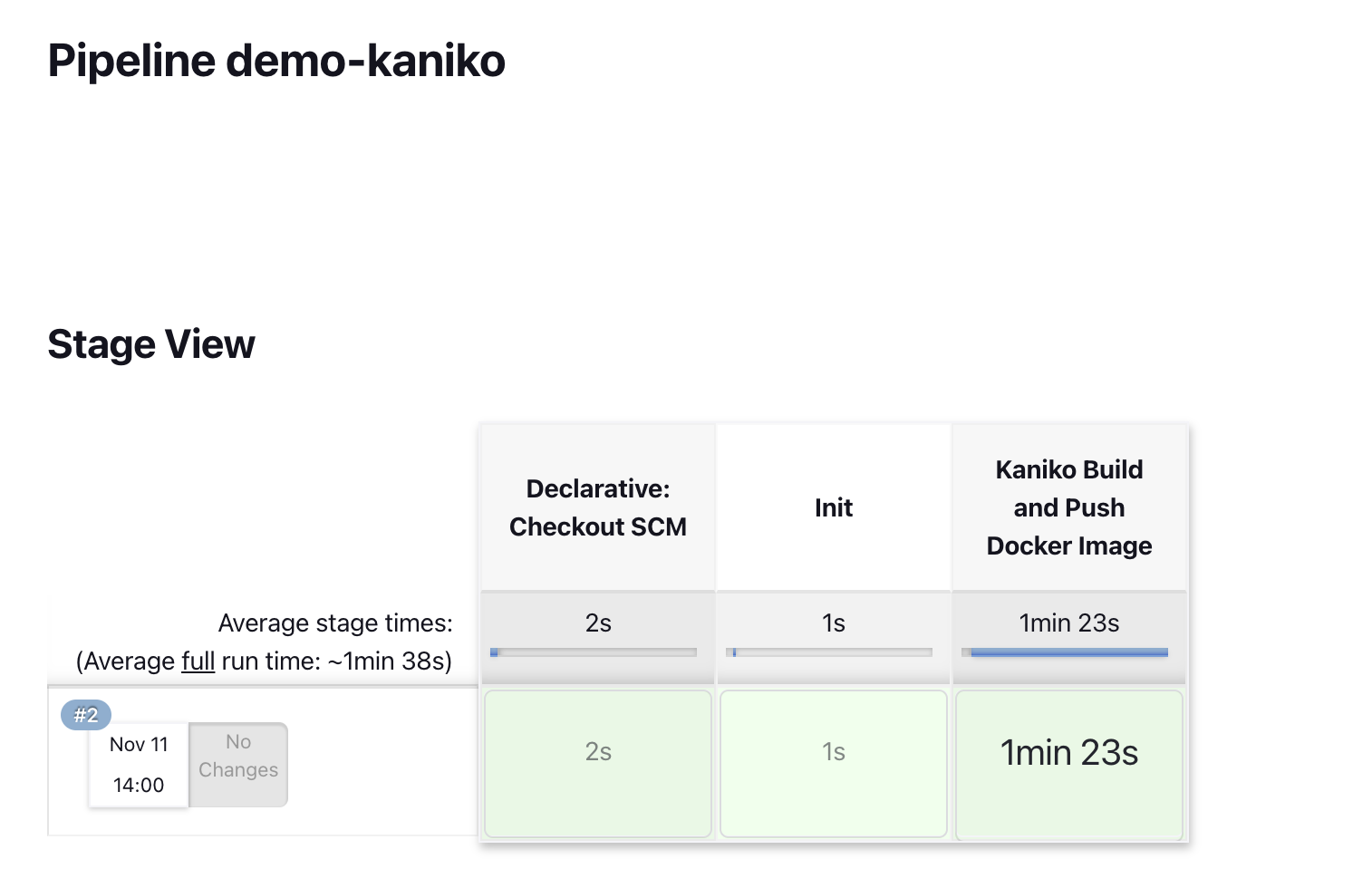云原生之旅 - 12)使用 Kaniko 在 Kubernetes上构建 Docker 容器镜像
前言
前一篇文章【云原生之旅 - 11)基于 Kubernetes 动态伸缩 Jenkins Build Agents】有讲到在 Kubernetes Pod (Jenkins build agent) 里面构建 docker 容器镜像,当时我们采取了一种简单快速的方式来 run docker in docker,也就是 mount /var/run/docker.sock 到主机的 docker engine,这需要docker run在特权 privileged 模式下,有很大的安全隐患。另外这种方式还有个很大的缺陷就是当一台机器上同时运行多个docker build agent时,会出现阻塞的情况,因为这一批agent用的都是宿主机上的同一个docker engine。
所以我们今天介绍一款专门用于Kubernetes 构建容器镜像的工具 Kaniko,它是 Google 创建的一个开源工具. 并且不需要 privileged access to the host,解决了前一种方式的缺陷。
关键词:使用Kaniko构建容器镜像,Run docker in docker, 在 Kubernetes上构建 Docker 容器镜像,无需特权在Kubernetes中构建镜像,docker privileged,更安全的方式构建容器镜像
### 本文同步发表于知乎 https://zhuanlan.zhihu.com/p/584805862
原理
Kaniko会先提取基础镜像(Dockerfile FROM 之后的镜像)的文件系统,然后根据Dockerfile中所描述的,一条条执行命令,每一条命令执行完以后会在用户空间下面创建一个snapshot,并与存储与内存中的上一个状态进行比对,如果有变化,就将新的修改生成一个镜像层添加在基础镜像上,并且将相关的修改信息写入镜像元数据中。等所有命令执行完,kaniko会将最终镜像推送到指定的远端镜像仓库。
准备
我们需要在Kubernetes 里创建一个 docker-registry 类型的 secret,后面会挂载到 kaniko container,这样kaniko才有权限push image到Docker Hub registry
kubectl -n jenkins create secret docker-registry dockercred \ --docker-server=https://index.docker.io/v1/ \ --docker-username=<dockerhub-username> \ --docker-password=<dockerhub-password>
使用 Kaniko 构建镜像
Define kaniko container in Pod Template
并且挂载刚才建的 docker-registry类型的secret
kind: Pod
spec:
containers: # list of containers that you want present for your build, you can define a default container in the Jenkinsfile
- name: kaniko
image: gcr.io/kaniko-project/executor:v1.9.0-debug # include shell
imagePullPolicy: IfNotPresent
command:
- /busybox/cat
tty: true
resources:
limits:
cpu: 500m
memory: 1024Mi
volumeMounts:
- name: kaniko-secret
mountPath: /kaniko/.docker
volumes:
- name: kaniko-secret
secret:
secretName: dockercred
items:
- key: .dockerconfigjson
path: config.json
Jenkins pipeline
- --context: This is the location of the Dockerfile.
- --destination: You need to replace Docker Hub username `wadexu007` with your Docker Hub username for kaniko to push the image to the Docker Hub registry.
pipeline {
options {
timeout(time: 10, unit: 'MINUTES')
buildDiscarder(logRotator(numToKeepStr: '10', daysToKeepStr: '7'))
}
agent {
kubernetes {
idleMinutes 3 // how long the pod will live after no jobs have run on it
yamlFile 'Jenkins/kaniko-demo/build-pod.yaml' // path to the pod definition relative to the root of our project
}
}
stages {
stage('Kaniko Build and Push Docker Image') {
steps {
script {
dir('Jenkins/kaniko-demo') {
container('kaniko') {
sh """
/kaniko/executor --context `pwd` --destination wadexu007/demo-app:1.0.5
"""
}
}
}
}
}
}
}
完整例子参考我的 Github Repo
### 本文同步发表于知乎 https://zhuanlan.zhihu.com/p/584805862
测试
创建一个Pipeline job
Repository URL = https://github.com/wadexu007/learning_by_doing
Script Path = Jenkins/kaniko-demo/Jenkinsfile
Click `Build now`

感谢阅读,如果您觉得本文的内容对您的学习有所帮助,您可以打赏和推荐,您的鼓励是我创作的动力
### 本文同步发表于知乎 https://zhuanlan.zhihu.com/p/584805862
Learning by Doing
分类:
SRE/DevOps






【推荐】国内首个AI IDE,深度理解中文开发场景,立即下载体验Trae
【推荐】编程新体验,更懂你的AI,立即体验豆包MarsCode编程助手
【推荐】抖音旗下AI助手豆包,你的智能百科全书,全免费不限次数
【推荐】轻量又高性能的 SSH 工具 IShell:AI 加持,快人一步
· 无需6万激活码!GitHub神秘组织3小时极速复刻Manus,手把手教你使用OpenManus搭建本
· C#/.NET/.NET Core优秀项目和框架2025年2月简报
· Manus爆火,是硬核还是营销?
· 一文读懂知识蒸馏
· 终于写完轮子一部分:tcp代理 了,记录一下